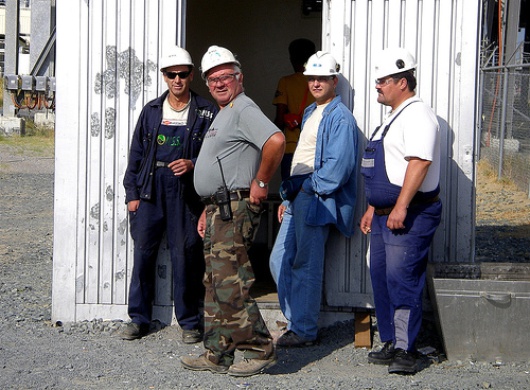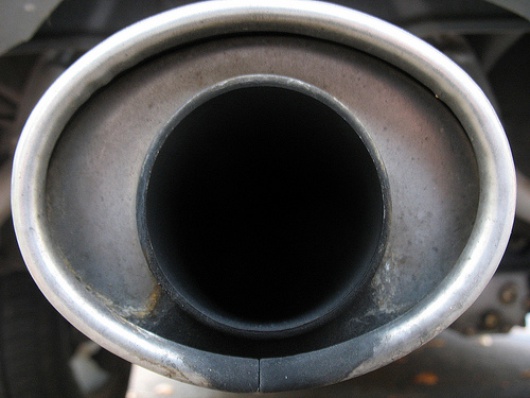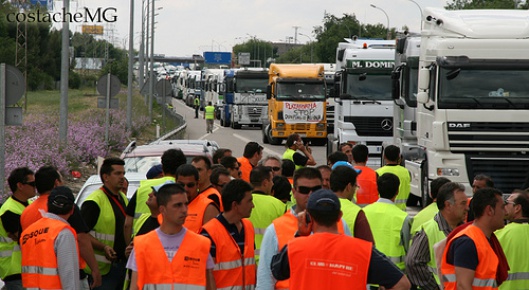
Ireland stamps its Eurosceptic foot
Published on
A low turnout, but a seismic result that raises more questions than it answers about Europe’s future direction. This and much, much more in our weekly round up from Brussels.
Democracy?
Less than half of the Irish population voted on the Lisbon Treaty. In other words: 1.5 million citizens decided on the future of 500 million. Is this what we call democracy? The scale of the NO vote was fairly emphatic - 53% - and the results plunge the EU into yet another crisis. The Lisbon Treaty has been ratified in 18 EU Member States.
EU sets working hours
 After more than a decade of stalemate EU employment ministers have agreed on Europe-wide regulations on agency workers and working hours. The United Kingdom pushed very hard to opt-out from the weekly maximum of 48 hours per week – to the chagrin of Spain, Greece and Belgium – and ultimately succeeded. European Trade Unions have welcomed that the directive strengthens the rights of temporary workers granting them the same rights in many areas as their permanent colleagues. However with many MEPs angry at the result, debate will continue.
After more than a decade of stalemate EU employment ministers have agreed on Europe-wide regulations on agency workers and working hours. The United Kingdom pushed very hard to opt-out from the weekly maximum of 48 hours per week – to the chagrin of Spain, Greece and Belgium – and ultimately succeeded. European Trade Unions have welcomed that the directive strengthens the rights of temporary workers granting them the same rights in many areas as their permanent colleagues. However with many MEPs angry at the result, debate will continue.
A tête-à-tête in German and French
 French president Nicolas Sarkozy and his German counterpart Angela Merkel announced an "important break through" on the reduction of car emissions from their current levels of around 160g/km to an average of 120g/km by 2012. The targets shall be based on a vehicles weight and making many large SUVs over the limit, so manufacturers will have to get their averages down by producing more efficient models. Greenpeace activists criticised Merkel heavily saying that the result had been biased by the German car industry while the original proposal made by the European Commission set much tougher targets.
French president Nicolas Sarkozy and his German counterpart Angela Merkel announced an "important break through" on the reduction of car emissions from their current levels of around 160g/km to an average of 120g/km by 2012. The targets shall be based on a vehicles weight and making many large SUVs over the limit, so manufacturers will have to get their averages down by producing more efficient models. Greenpeace activists criticised Merkel heavily saying that the result had been biased by the German car industry while the original proposal made by the European Commission set much tougher targets.
Price for black gold fuelling debate
 A week ahead of the EU summit in Brussels, the European Commission is seeking to calm the panic caused by high oil prices. Last week a demonstration of farmers, fishermen and truck drivers throughout Europe turned into a fighting scene during the ECOFIN Council. The European Commission has announced plans to come up with tax breaks and other incentives to help in the medium to long term. In the short term, EU countries shall be allowed to provide "targeted support" to poorer households provided that the measures are "temporary, non-distorting and do not inhibit longer term adjustment to higher prices".
A week ahead of the EU summit in Brussels, the European Commission is seeking to calm the panic caused by high oil prices. Last week a demonstration of farmers, fishermen and truck drivers throughout Europe turned into a fighting scene during the ECOFIN Council. The European Commission has announced plans to come up with tax breaks and other incentives to help in the medium to long term. In the short term, EU countries shall be allowed to provide "targeted support" to poorer households provided that the measures are "temporary, non-distorting and do not inhibit longer term adjustment to higher prices".



